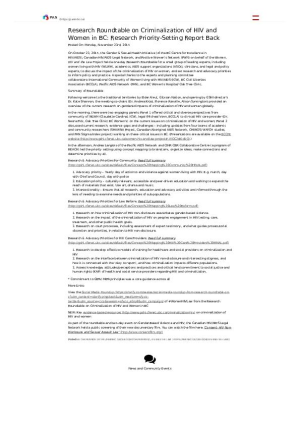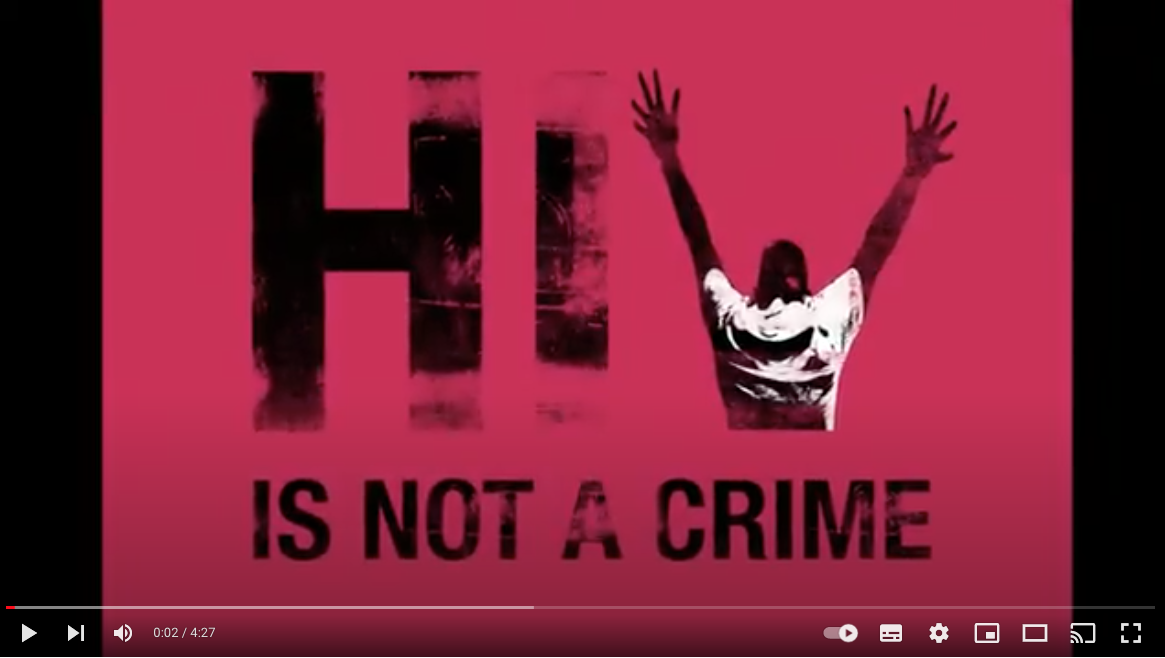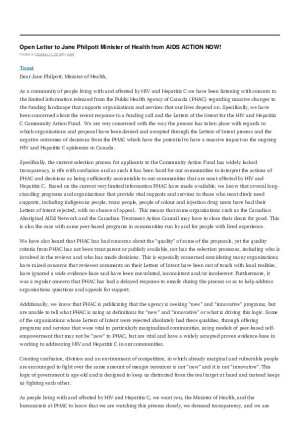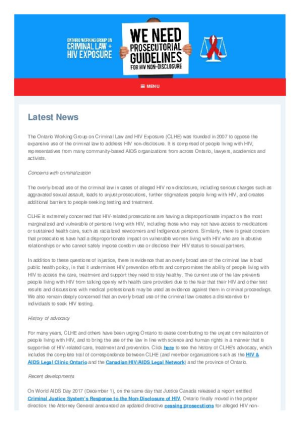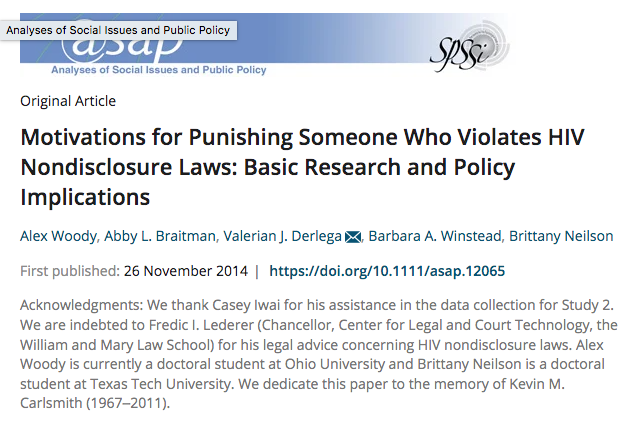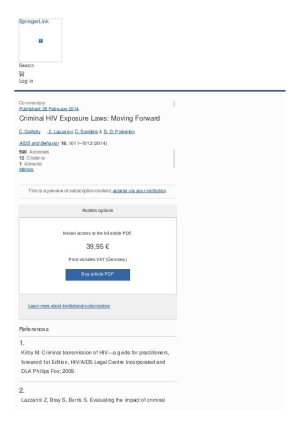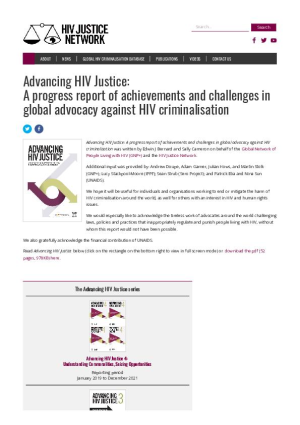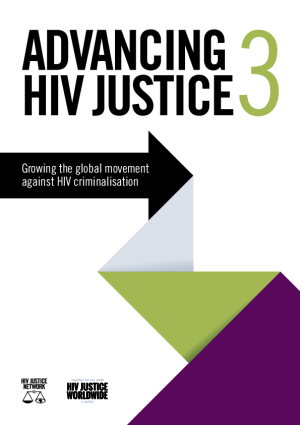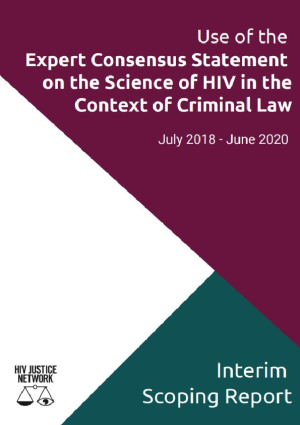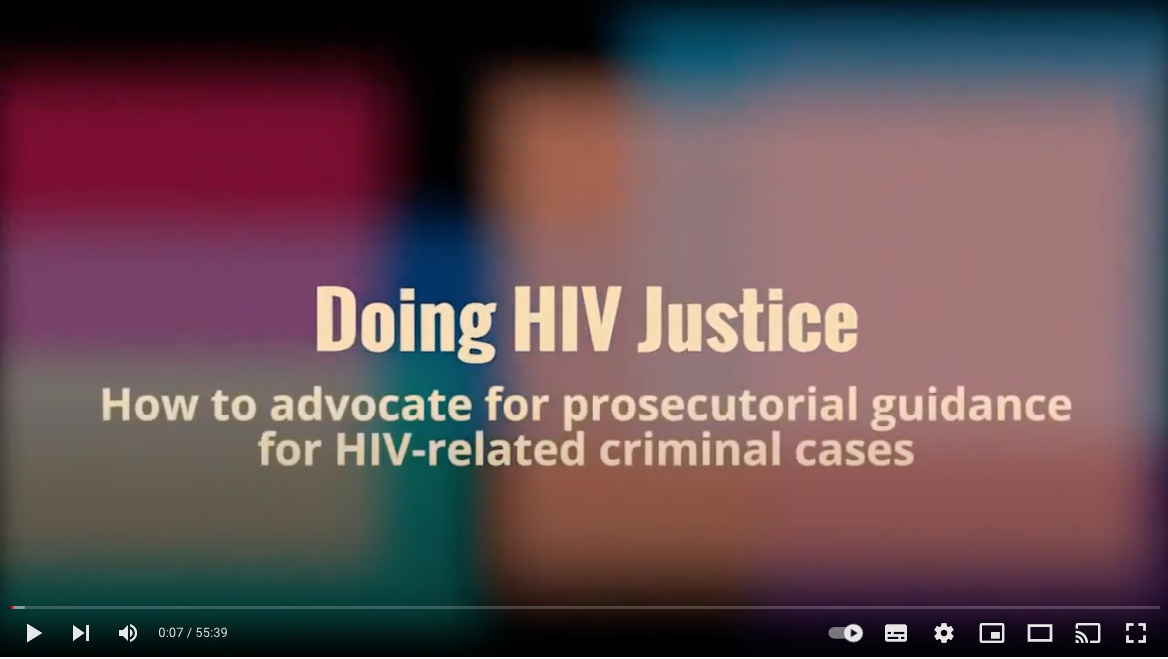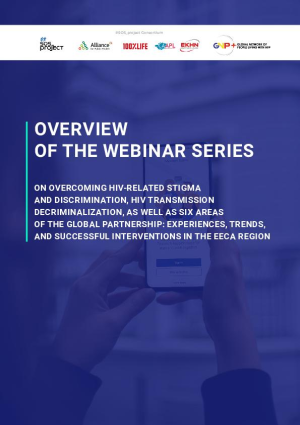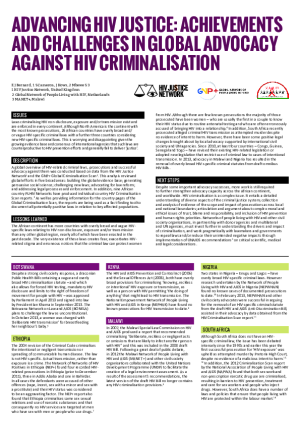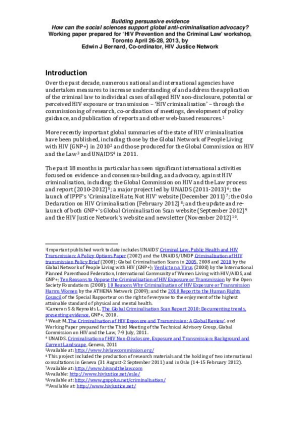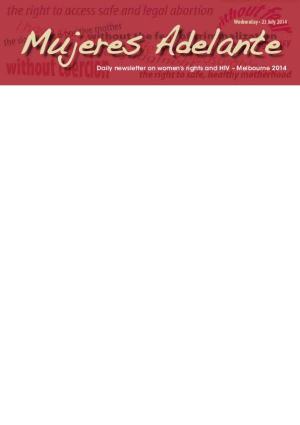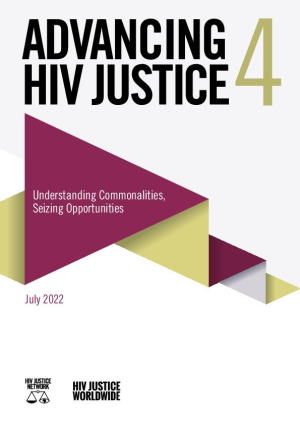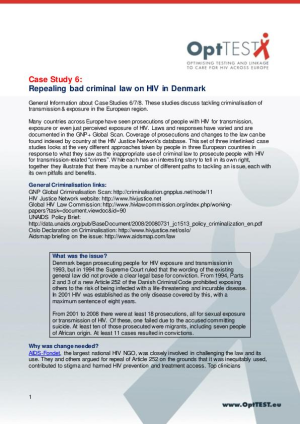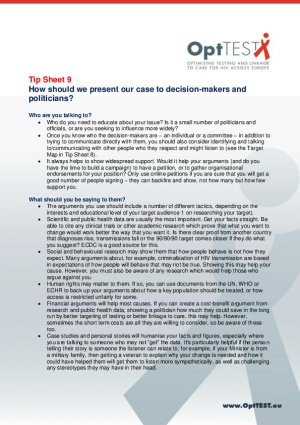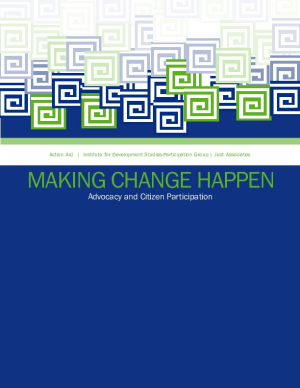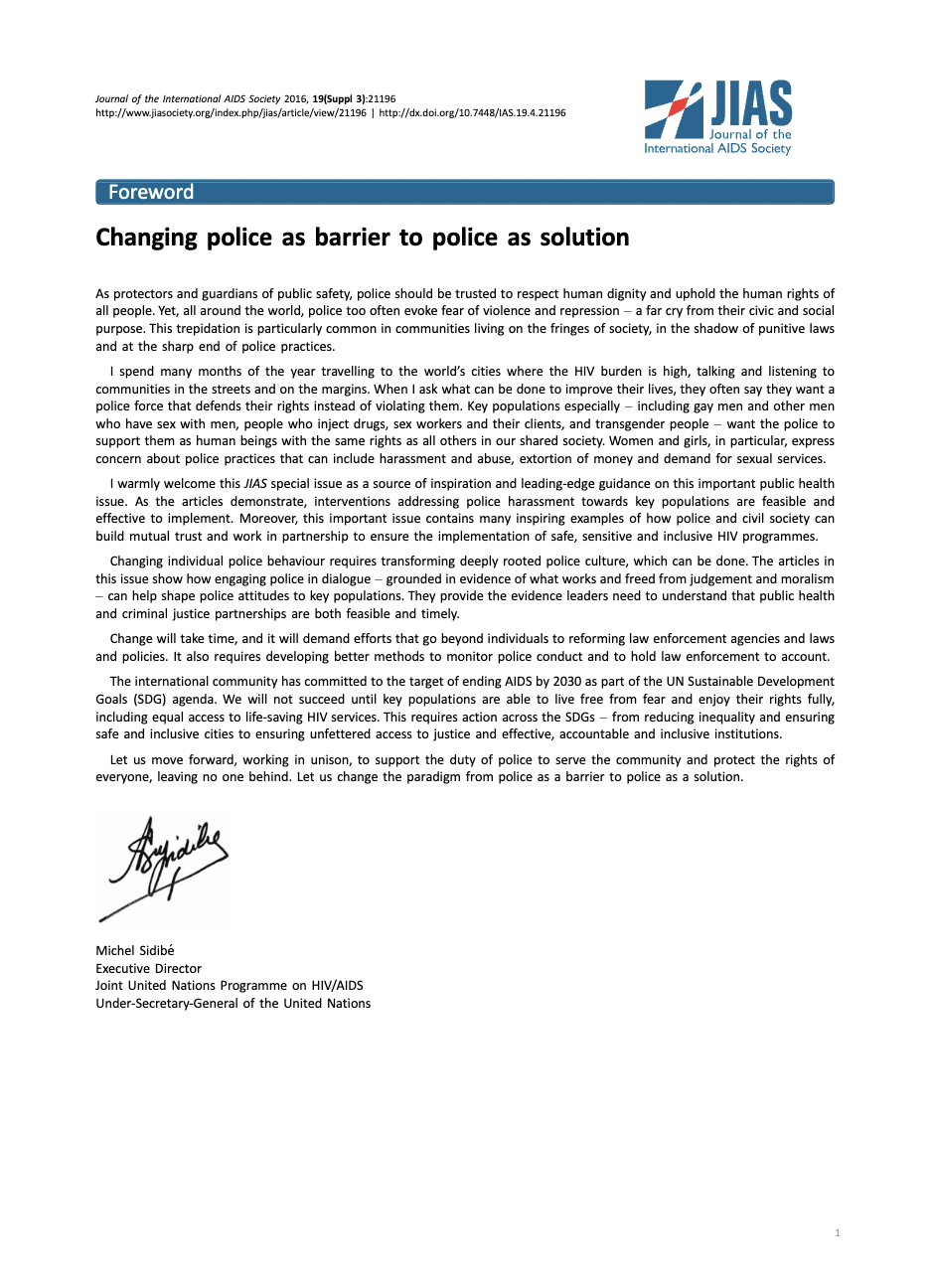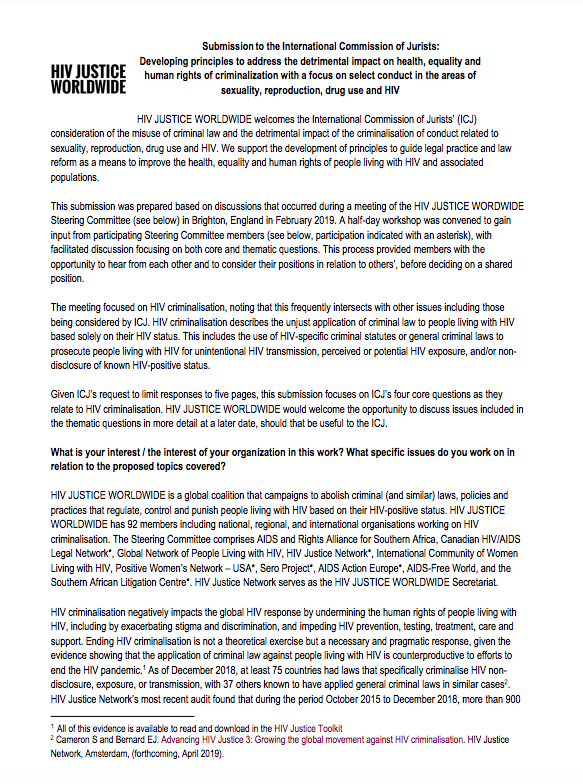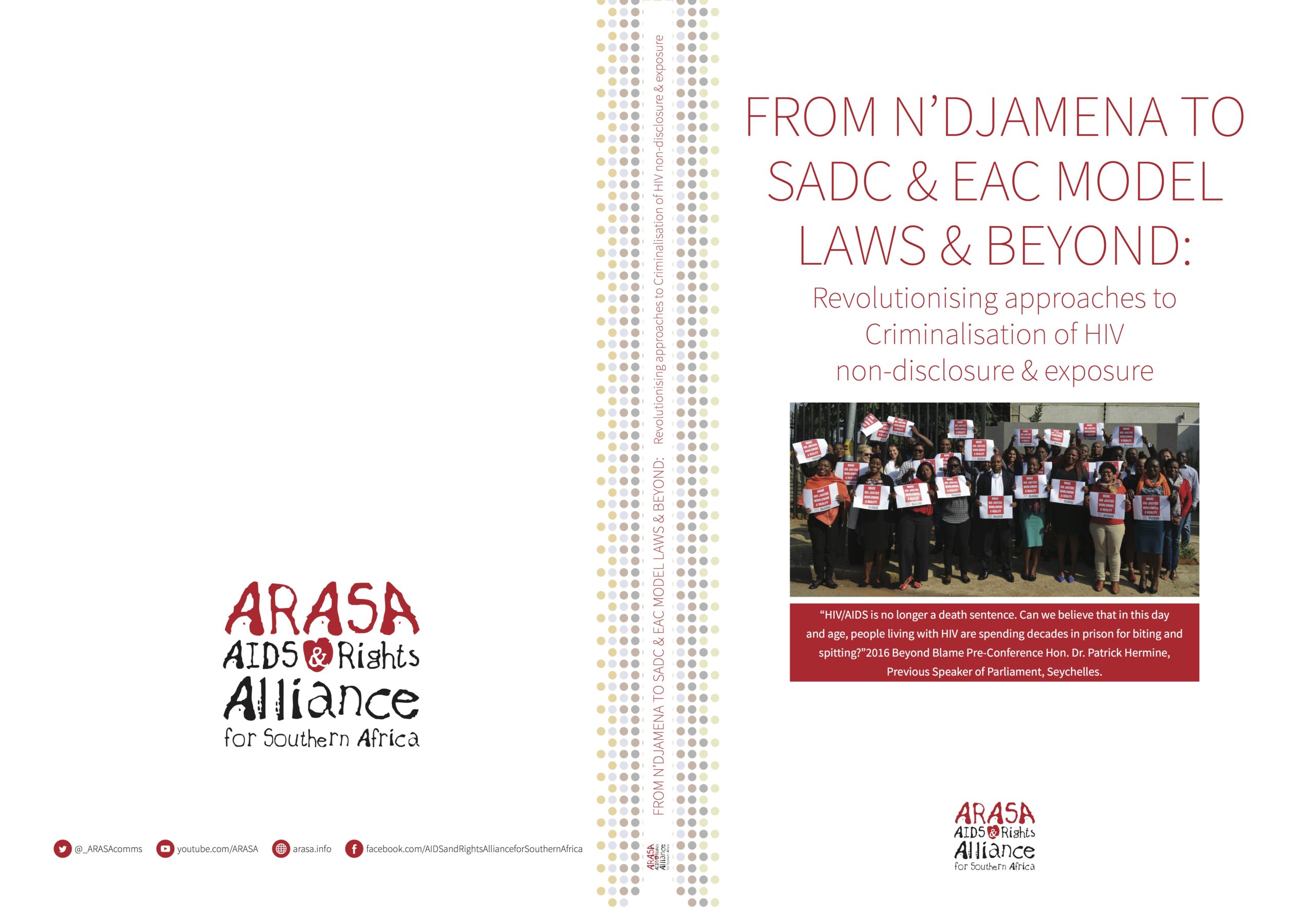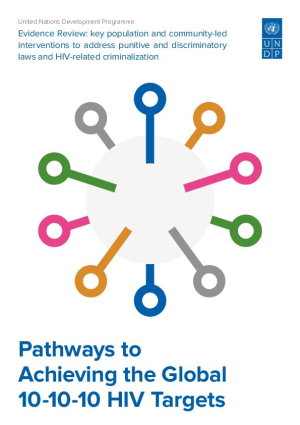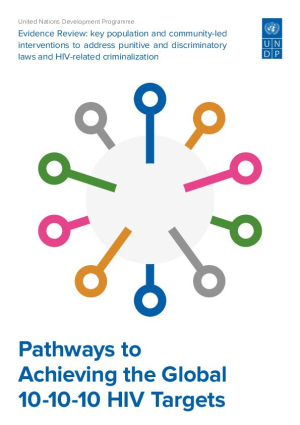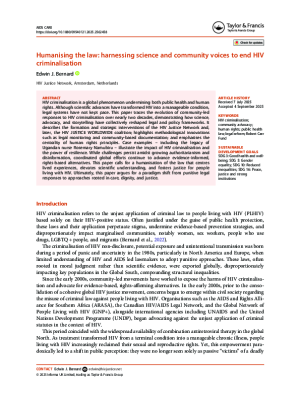Outlines the impact of the criminalization of HIV on women, and sets research and advocacy priorities to inform policy and practice.
Advocacy and activism
Strategising and organising advocacy
Opening Ceremony, HIV Is Not A Crime Conference
Includes highlights from the opening ceremony of the first-ever conference on HIV criminalization in the U.S. (HIV is Not a Crime) attended by more than 170 people from 27 states.
Taking the fight against HIV criminalization to Crown Prosecutors
Outlines a stage in AIDS Action Now’s Think Twice campaign, which involved sending letters to the Ontario Crown Prosecutors who have brought forward HIV non-disclosure prosecutions, as well as their bosses and the Attorney General, asking them to ‘think twice’ before pursuing prosecutions.
Ontario Working Group on Criminal Law and HIV Exposure
Information on advocating for prosecutorial guidelines.
Criminal prosecutions for non-disclosure of HIV: engaging with governmental health authorities to advocate for the development of prosecutorial guidelines in Quebec
Describes creation of a working group facilitating dialogue between the justice and public health authorities on the issue of criminalization. The working group called on the Justice Ministry to develop prosecutorial policies and guidelines. Governmental health authorities proved to be key allies in opening a dialogue with the Justice Ministry. Suggests that health authorities should play a central role in the development of prosecutorial policies and guidelines.
Motivations for Punishing Someone Who Violates HIV Nondisclosure Laws: Basic Research and Policy Implications
Suggests the general public is likely to endorse HIV criminalisation as fair and credible if used to punish actions that cause considerable harm. While it may not be possible to gain public support for a sweeping elimination of HIV criminalisation laws, a realistic advocacy agenda may involve arguments for limiting statutes and prosecutions to egregious cases where considerable harm is caused.
Criminal HIV exposure laws: Moving forward
Asks whether “after more than 25 years one has to wonder if researchers and advocates might be simply ‘preaching to the choir’”. Argues that advocacy will benefit from applying more time to understanding the systems and beliefs that allow HIV criminalisation to endure.
HIV is not a Crime Training Academy 2016
Supports advocates to effectively strategize about ending HIV criminalisation. The 30-minute video distils the content of the three-day training academy into four overarching themes: survivors, victories, intersectionality and community.
Criminalization of HIV Non-Disclosure in Canada Video Series
Series of 23 short videos on different aspects of criminalization of HIV non-disclosure in Canada. Topics include: What is criminalization of HIV disclosure?, What should I do if I’m charged?, Why don’t people with HIV always disclose?, and How does Canada’s strict legal stance affect those living with HIV?.
Advancing HIV Justice: A progress report of achievements and challenges in global advocacy against HIV criminalisation
Provides a progress report of achievements and challenges in global advocacy against HIV criminalisation during the 18 month period, September 2011 to March 2013.
Advancing HIV Justice 2: Building momentum in global advocacy against HIV criminalisation
Provides a progress report of achievements and challenges in global advocacy against HIV criminalisation from April 2013 to 30 September 2015.
- Alternative links
- Français (Traduction automatisée),
Unsafe law: health, rights and the legal response to HIV
Suggests that, while important, rights-based arguments are an insufficient basis for advocacy, with legal scholarship and research having an important role to play. Argues that policy-makers, legislators and those responsible for interpretation and enforcement of law must base their HIV response not on populist morality but on the strong evidence base provided by three decades of clinical, scientific and social research.
Advancing HIV Justice 3: Growing the global movement against HIV criminalisation
Provides a progress report of achievements and challenges in global advocacy against HIV criminalisation from 1st October 2015 to 31st December 2018.
Use of the Expert Consensus Statement on the Science of HIV in the Context of Criminal Law
Interim scoping report that explores the impact of the Expert Consensus Statement in the two years since its publication.
HIV Justice Live! – E04: Doing HIV Justice
In this episode of HIV Justice Live! HIV Justice Networks looks at UNDP’s new Guidance for Prosecutors; we learn from activists from England & Wales how they worked with the Crown Prosecution Service to establish prosecutorial guidelines; and we hear about similar attempts in Canada.
Overview of the webinar series on overcoming HIV-related stigma and discrimination, HIV transmission decriminalisation as well as six areas of the Global Partnership in the EECA region
The CO “100 PERCENT LIFE” and the Global Network of People living with HIV held a series of thematic webinars that brought together activists with expertise in the decriminalization of HIV transmission and representing countries from the EECA region. The first two webinars in the series aimed to provide an overview of the objectives and tools within the Global Partnership (webinar 1) and outline key human rights challenges and led to a subsequent detailed discussion of seven key programs and six areas in the work to address stigma, discrimination, and criminalization (webinar 2). The speeches of all speakers and links to their presentations are available for download in Annex 1 of this document.
Beyond Blame: Challenging HIV Criminalisation at AIDS 2016
On 17 July 2016, approximately 150 advocates, activists, researchers, and community leaders met in Durban, South Africa, for Beyond Blame: Challenging HIV Criminalisation – a full-day pre-conference meeting preceding the 21st International AIDS Conference (AIDS 2016) to discuss progress on the global effort to combat the unjust use of the criminal law against people living with HIV. Attendees at the convening hailed from at least 36 countries on six continents (Africa, Asia, Europe, North America, Oceania, and South America). This report presents an overview of key highlights and takeaways from the convening grouped by the following recurring themes: Key Strategies Advocacy Tools Partnerships and Collaborations Adopting an Intersectional Approach Avoiding Pitfalls and Unintended Consequences.
Advancing HIV Justice: Achievements and Challenges in Global Advocacy Against HIV Criminalisation – African Update (ICASA 2013)
Although North America is the continent with the most known prosecutions, 26 African countries have overly broad and/or vague HIV-specific criminal laws and another 3 are considering enacting similar laws. This analysis reviewed global efforts in five broad areas: building the global evidence base; generating persuasive social science; challenging new laws; advocating for law reform; and addressing legal processes and enforcement.
Building persuasive evidence: How can the social sciences support global anti-criminalisation advocacy?
Working paper prepared for ‘HIV Prevention and the Criminal Law’ workshop, Toronto April 26-28, 2013. In order to better understand how advocates have used evidence to persuade policymakers and/or criminal justice system actors to repeal, reform and/or create improved outcomes for public health and/or human rights, leading advocates in four jurisdictions where such positive changes are taking place and/or have already occurred (Victoria, Australia; Denmark; England & Wales; and Iowa, United States) were asked to take part in a survey.
Beyond Blame: Challenging HIV Criminalisation
In this special report published in 'Mujeres Adelante @ AIDS 2014', Felicita Hikuam of ARASA describes the highlights of this International AIDS Conference pre-conference (held on Sunday, 20 July 2014 in Melbourne, Australia) which focused on working to end the overly broad criminalisation of HIV non-disclosure, exposure and transmission.
Advancing HIV justice 4: Understanding Commonalities, Seizing Opportunities
Provides a progress report of achievements and challenges in global advocacy against HIV criminalisation from 1st January 2019 to 31st December 2021.
OptTEST case study 6: Repealing bad criminal law on HIV in Denmark.
This study looks at how Denmark tackled criminalisation of transmission & exposure.
OptTEST case study 8: Criminalisation law reform in the Netherlands
This study looks at how The Netherlands tackled criminalisation of transmission & exposure.
OptTEST Tip sheet 9 – How should we present our case to decision-makers and politicians?
Explores how to educate decision-makers and politicians, best ways to communicate, how to frame the arguments etc.
Making Change Happen: Advocacy and Citizen Participation
The Making Change Happen workshop brought together innovative activists and thinkers to reclaim advocacy and citizen participation as deep and ongoing processes of organizing, consciousness raising, political empowerment and social transformation to benefit the poor and marginalized. This report is structured around the key themes addressed during the meeting:
- Engagement in advocacy - When is a policy space strategic and when is it just window dressing?
- Issue-based struggle or struggle-based issue - Linking social transformation and policy advocacy
- Who’s who in advocacy - Identity, representation and legitimacy
- How to assess success - Evaluation for learning
Implementing and scaling up programmes to remove human rights related barriers to HIV services
This publication builds on existing global technical guidance in human rights responses, and further advances efforts to support implementers to design and deliver high quality human rights programmes that are well integrated, sustainable, and at scale. The guidance is practical and organised around the Investment Approach to HIV. It helps implementers to understand the programmatic components of evidence-informed and quality interventions to remove barriers to services.
Issue Brief #1: Enabling Legal Environments, Including Decriminalization for HIV Responses
This issue brief shares lessons and reflections on enabling legal environments, including decriminalisation, to inform the implementation of key commitments in the 2021 Political Declaration on HIV and AIDS and the Global AIDS Strategy. These include a shared understanding of the harms caused by the overly broad and unjust application of criminal laws; sensitization of key stakeholders and their engagement in legal review processes; A well-informed judiciary; Coordinated, multi-pronged and multisectoral legal advocacy; and, global and regional advocacy to advance national-level changes to HIV-related punitive and discriminatory laws, including decriminalization.
Police, Law Enforcement and HIV
JIAS special issue containing examples of how police and civil society can build mutual trust and work in partnership to ensure the implementation of safe, sensitive and inclusive HIV programmes.
Submission to the International Commission of Jurists: Developing principles to address the detrimental impact on health, equality and human rights of criminalization with a focus on select conduct in the areas of sexuality, reproduction, drug use and HIV
This submission was prepared based on discussions that occurred during a meeting of the HIV JUSTICE WORDWIDE Steering Committee. The meeting focused on HIV criminalisation, noting that this frequently intersects with other issues including those being considered by ICJ.
From N’Djamena to SADC & EAC Model Laws and Beyond: Revolutionising approaches to Criminalisation of HIV non-disclosure & exposure
ARASA in collaboration with the HIV Justice Worldwide (HJWW) Consortium, convened a two-day meeting involving policy and law makers, members of the judiciary, lawyers, parliamentarians and representatives from civil society organisations from the East African, SADC regions and global North to revisit alternative approaches towards criminalisation and to accelerate a sustained momentum, strengthen collective action.
The Weight of Science: Decriminalizing HIV in Pennsylvania
This report highlights the issue of HIV criminalization in Pennsylvania, where individuals living with HIV have been prosecuted under existing criminal laws solely due to their HIV status. The report emphasizes that following the evidence-based science and moving away from fear-based approaches will be essential in addressing HIV criminalization, ending stigma and discrimination, and ultimately halting the HIV epidemic.
“It is time!” – How Zimbabwe decriminalised HIV
This video explores how advocates, legal experts, and community leaders worked together to repeal Section 79 of Zimbabwe’s Criminal Code, which criminalised HIV non-disclosure, exposure, or transmission. It outlines key strategies used in the campaign and lessons for other countries seeking to end HIV criminalisation. It also shows how advocates responded when a new law threatened to reintroduce HIV criminalisation.
Bringing Science to Justice: Impact of the Expert Consensus Statement on the Science of HIV in the context of criminal law over the past five years (Poster)
Research findings on the five-year impact of the ‘Expert Consensus Statement on the Science of HIV in the Context of Criminal Law’, presented at the International AIDS Conference (IAS 2023). The research examined the impact of the Expert Consensus Statement on individual cases as well as broader law and policy outcomes in the five years since its publication and found that the statement remains relevant, accurate and extremely useful. Newer studies bolster the conclusions presented in the statement, reinforcing its overarching message that science does not support HIV criminalisation.
Evidence Review: key population and community-led interventions to address punitive and discriminatory laws and HIV-related criminalization
Pathways to Achieving the Global 10-10-10 HIV Targets. This evidence review canvasses the peer-reviewed and grey literature published from January 2018 to December 2022 to identify tactics, strategies, and approaches that have been used to remove or mitigate the impact of discriminatory and punitive laws or policies. This evidence review is particularly focused on initiatives that were led by key populations and people living with HIV.
Pathways to Achieving the Global 10-10-10 HIV Targets
This review focuses on initiatives led by key populations and people living with HIV documented in peer reviewed and grey literature published between January 2018 and December 2022. To assist in meeting the 10-10-10 targets, the review highlights 14 specific tactics, strategies and approaches that have been used to reform or mitigate the impact of punitive and discriminatory laws and policies and HIV-related criminalisation on access to services for people living with HIV and other key populations. This review serves as a tool for all stakeholders, including civil society, communities of people living with and affected by HIV and other key populations, development partners, government officials and donors to identify relevant and linked avenues to pursue in legal and policy reform for achieving the 10-10-10 targets of the 2021 Political Declaration on HIV and AIDS.
Humanising the law: harnessing science and community voices to end HIV criminalisation
This paper traces the evolution of community-led responses to HIV criminalisation over nearly two decades, demonstrating how science, advocacy, and storytelling have collectively reshaped legal and policy frameworks.It describes the formation and strategic interventions of the HIV Justice Network and, later, the HIV JUSTICE WORLDWIDE coalition; highlights methodological innovations such as legal monitoring and community-based documentation; and emphasises the centrality of human rights principles. Case examples - including the legacy of Ugandan nurse Rosemary Namubiru - illustrate the impact of HIV criminalisation and the power of resilience. While challenges persist amidst growing authoritarianism and disinformation, coordinated global efforts continue to advance evidence-informed, rights-based alternatives. This paper calls for a humanisation of the law that centres lived experiences, elevates scientific understanding, and fosters justice for people living with HIV. Ultimately, this paper argues for a paradigm shift from punitive legal responses to approaches rooted in care, dignity, and justice.

